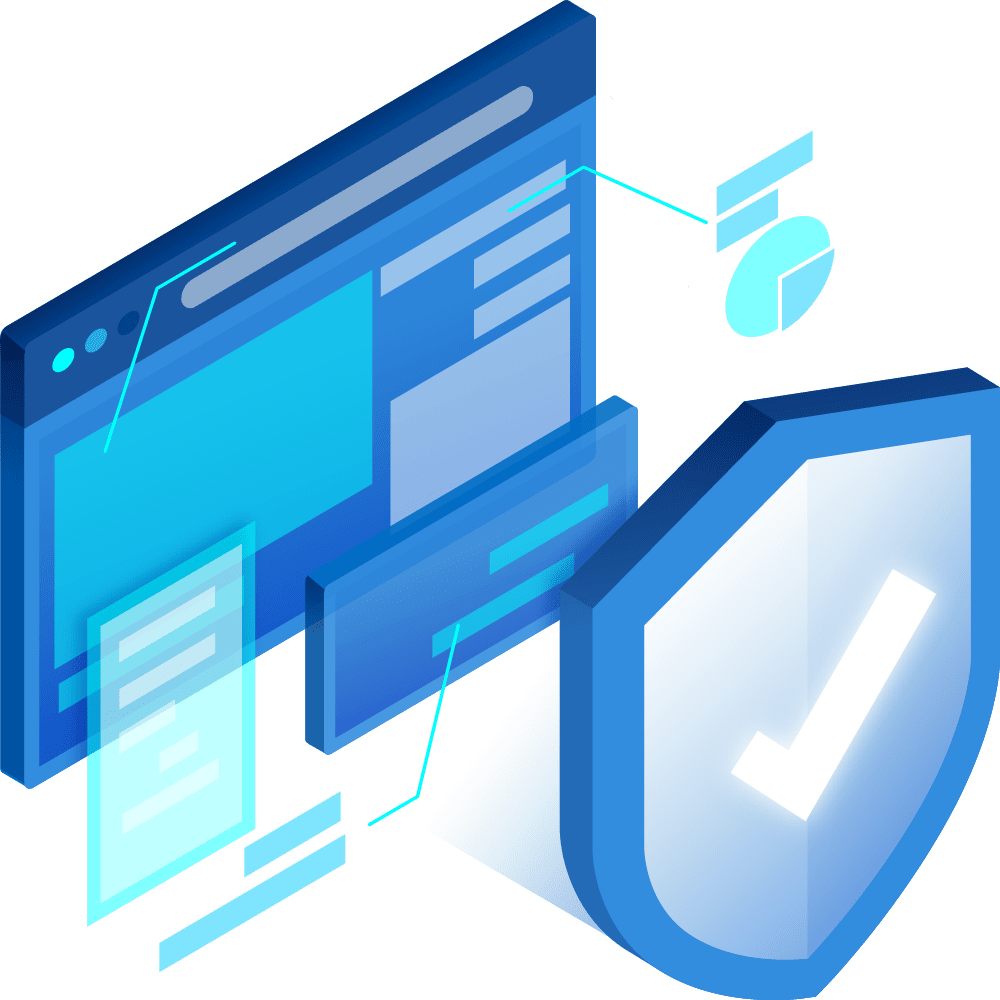Ethics & Transparency
Module
Our Ethics & Transparency Module is engineered to help organizations in proactively managing ethical and transparency-related risks.
Features of the Ethics & Transparency Module
Compliance Evaluations
Imagine a tool that empowers you to monitor real-time compliance with ethical standards and regulations. This Module allows effortless management of compliance evaluations and audits, the establishment of action plans, and tracking of progress achieved.
Document Management
Keep all compliance and risk management documents related to ethics and transparency in one place. Our document management tool provides quick, secure access to these critical documents.
Meeting Management
Organize and efficiently track meetings dedicated to ethics and transparency. Our meeting management tool allows for meeting preparation, note-taking, and sharing of decisions made with participants.
Risk Register
A dedicated risk register for ethical and transparency issues — sounds intriguing, doesn’t it? This tool enables you to track and mitigate all risks related to these areas, ensuring your organization is always a step ahead.
Training Management
Ensure your staff is well-informed about ethical risks and measures to mitigate them. Our training management tool allows for easy tracking of your employees’ progress and offers tailored e-learning courses to meet their needs.
Risk Assessment and Analysis
Identify ethical and transparency risks before they escalate into significant challenges. Our risk analysis tool allows you to visualize key data and make informed decisions to safeguard your organization.
Risk Mapping
Don’t let ethical risks catch you off guard. With our risk mapping feature, you can craft detailed maps that guide you in understanding and anticipating the risks your organization faces.
Incident Management
Don’t let ethical incidents tarnish your organization’s reputation. Our incident management tool allows for effective resolution and tracking of measures taken to address these incidents.
Control Mechanism Catalog and Collaborative Action Plans
Implement action plans to mitigate ethical and transparency risks with the assistance of our control mechanism catalog. Included collaborative tools streamline the execution of these action plans.
Beyond Standard Features
Specific Functions For Enhanced Ethical Challenges
Management Supplementing the general features offered by Smart Global Governance, the Ethics & Transparency Module provides specific tools for an even more precise and tailored management of your organization’s ethical stakes:
Gift, Invitations, Sponsorship, Patronage, Conflict of Interest Register
This function allows you to record and track all exchanged gifts and invitations, accomplished sponsorships, and potential conflict of interest situations within your organization. With a centralized register, you can easily identify and manage sensitive situations while ensuring absolute transparency.
Example:
Imagine your organization is hosting an event with key partners. With the register, you can monitor sent and received invitations, as well as gifts given and received during the event. If an employee finds themselves in a conflict of interest, you can quickly identify and resolve the issue, thereby protecting your organization from potential repercussions.
Whistleblower System
The whistleblower feature is essential to encourage employees to report unethical or inappropriate behaviors confidentially. This system guarantees a secure and anonymous communication channel, promoting a culture of transparency and integrity.
Example:
An employee notices a colleague acting contrary to the organization’s ethical principles. With the whistleblower system, the employee can report this behavior without fear of retaliation. The organization can then investigate and take appropriate action to resolve the issue.
Investigation Management
The management of investigations is critical to ensuring effective follow-up on ethical alerts and incidents. This function allows you to manage internal or external investigations in a structured way, by assigning responsibilities, defining the steps in the investigation process, and ensuring rigorous follow-up on actions taken.
Example:
Following an alert by an employee, the organization decides to conduct an internal investigation. The investigation management function allows you to define the stages of the investigation, assign responsibilities to team members, and track actions taken. This way, the organization can quickly identify ethical issues and take necessary steps to resolve them.
Boost Compliance and Maximize Efforts through Seamless Interoperability
When the Ethics & Transparency Module is coupled with the Integrated Risk Management Module, the resulting interoperability brings invaluable value, easing the management and tracking of evolving regulations and standards.
Here are just a few examples of how interoperability can fortify compliance and enhance efforts in ethics and transparency within your organization:
Streamlining Workflows
Interoperability lets you sidestep duplicate efforts by identifying similar or correlated requirements across different regulations and standards.
Example:
If an anti-corruption standard mandates ethics training for employees and a social responsibility standard demands the same, interoperability allows you to consolidate these needs, slashing the time and resources needed for their management.
Conflict and Inconsistency Detection
Interoperability enables swift identification and resolution of potential contradictions among different requirements.
Example:
If one regulation demands the disclosure of sensitive information about business partners, and another regulation restricts this disclosure to protect privacy, interoperability will allow you to strike a balance to comply with both requirements.
Simplified Documentation
Interoperability eases the documentation of requirements by letting you apply the documentation of one requirement to other standards or regulations.
Example:
If you’ve already documented your organization’s policies and procedures for preventing conflicts of interest, interoperability allows you to also apply them to other regulations and standards requiring appropriate conflict of interest management.
Enhanced Collaboration and Data Sharing
Interoperability promotes collaboration among different stakeholders within the organization by highlighting the connections between different requirements.
Example:
Teams responsible for financial regulation compliance and data protection can join forces to identify common requirements and tackle them cohesively.
By weaving the Ethics & Transparency Module into the Integrated Risk Management Module, you unlock the power of interoperability, fortifying your adherence to applicable standards and regulations.
This approach empowers you to:
✔️ Reduce documentation costs
✔️ Maintain and update requirements
✔️ While improving the quality and performance of risk and compliance management in your organisation.

Ready to transform your risk and compliance management?
Join over 300,000 users who already trust us in 100 countries!